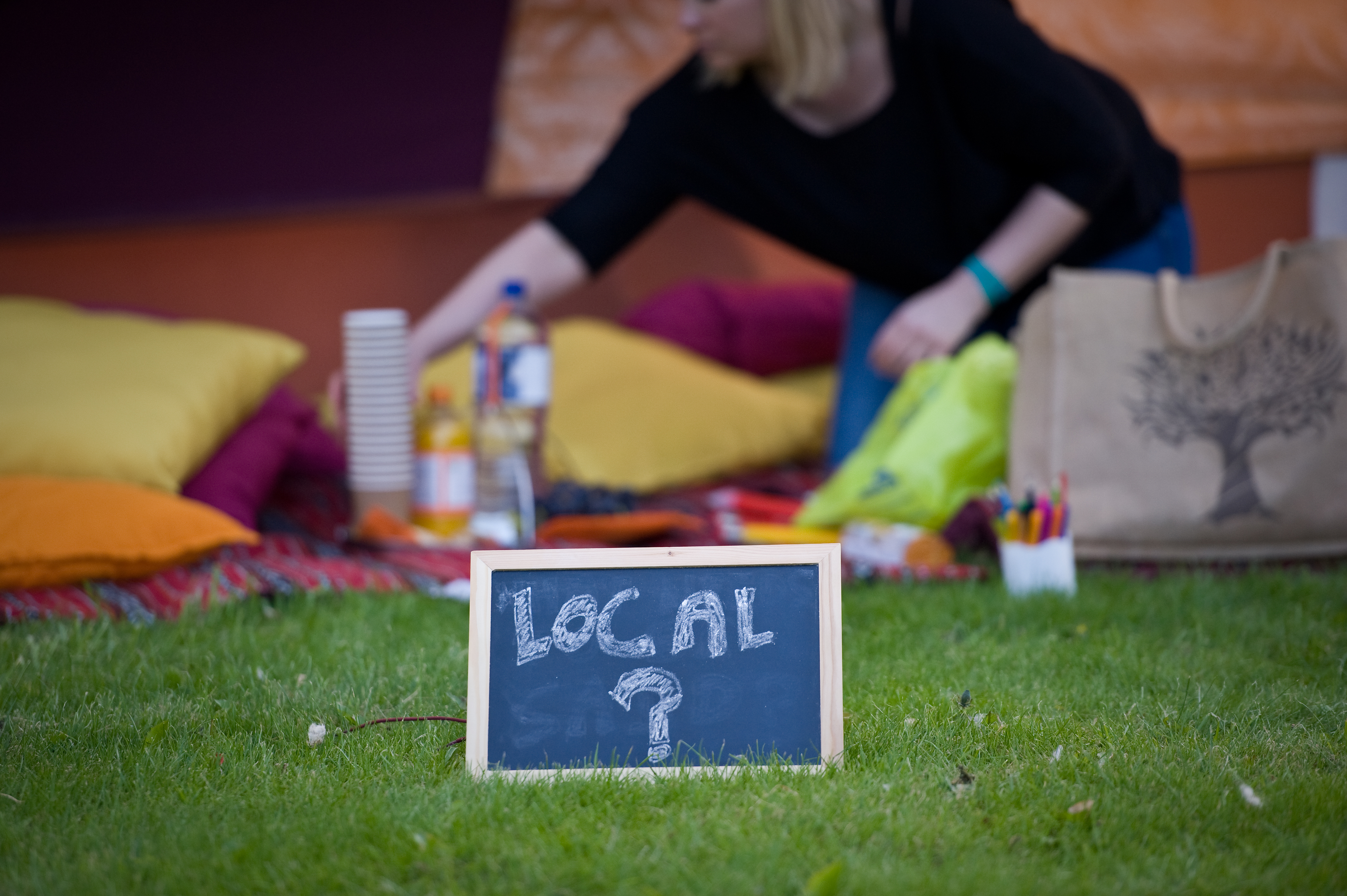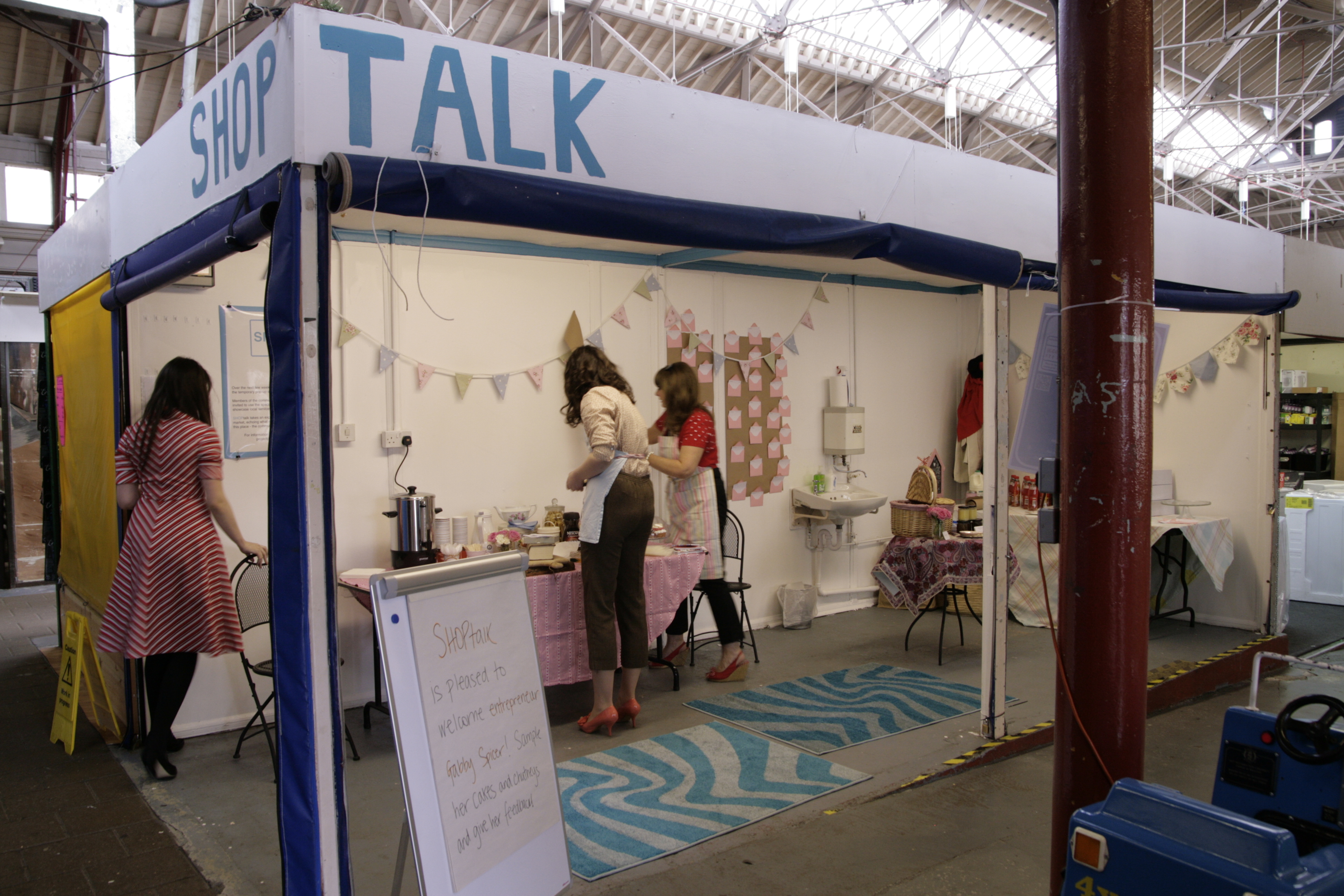Alexia Mellor is a practice-led PhD researcher in fine art, investigating participatory art practices and the local-global discourse. In this blog post, she explores the theme of arts and culture in social renewal following her presentation as part of the ‘New Voices in Social Renewal’ public lecture in Newcastle University. She challenges the valuing of art for its economic or even social benefit, and argues that the way forward is a more active citizenship.

Credit and Copyright ©: Colin Davison
+44 (0)7850 609 340
colin@rosellastudios.com
www.rosellastudios.com
Participation seems to be the new buzzword, but what do we actually mean by it? What does it mean for social renewal? I am particularly interested in this as an artist and researcher whose practice involves working with people to question ideas and to make meaning.
Participatory art, socially-engaged art, dialogical art – they are all names for a broad spectrum of art practices that involve using the social as both the context and medium for the work. With ‘Big Society’ devolving responsibility, continuing austerity measures, and the arts being asked to make an economic as well as cultural case[1], social arts practices have come even more into the spotlight. There has been a visible push across the arts and cultural sector to focus on social inclusion, reaching out to communities that have been identified as disadvantaged or not engaging with cultural activities[2]. Having been commissioned to work on art projects associated with regeneration programmes and other such initiatives, I have become keenly aware of some of the issues with seeing art as a means to dealing with social problems.
This isn’t to say that art can’t help with social issues, but should it or must it? Of primary concern for me are questions around whose notions of ‘social betterment,’ or cultural engagement, are being acknowledged or furthered with the agendas behind these commissioned projects? What does this mean for the perceived role of the arts in society today? What agency does the participant have – does having access to an art or cultural project mean the same thing as participating in it?
My colleague and frequent collaborator, Dr. Anthony Schrag, and I have written frequently about this trend of using socially-engaged arts practices as an instrument towards particular agendas or targets. Whether these agendas are set by supporting organisations, commissioning bodies, or policy, the instrumentalism of socially-engaged art practice carries risks. Above all, instrumentalism risks losing the very thing that makes socially-engaged practices unique and relevant: their ability to involve participants across art and non-art contexts in critical, interdisciplinary dialogue.
Criticality is the core issue here. It is a myth that consensus necessarily leads to social cohesion. Society is complex and made of difference. What Anthony and I as practitioners and researchers both argue is that embracing a participatory approach that allows for, disagreement, difference and dissensus through critical interrogation is crucial. French theorist, Chantal Mouffe, refers to the need for welcoming healthy conflict and difference in her discussion of agonism. Agonism is not antagonism. Quite the opposite. Agonism sees the value in, and necessity of, respectful disagreement as a way of finding common ground, of finding creative solutions, and of revealing questions we did not know needed to be asked. She argues that agonism is key to true democracy, and ultimately to active citizenship.
Participation in active citizenship requires physical and conceptual spaces for critical reflection that embrace difference and allow for multiple perspectives to be heard. I suggest that socially-engaged arts practices might offer a model for this. Beyond ‘bums on seats,’ this type of art practice sees participants as co-creators in developing a critical space and what happens within it. As opposed to advocating any pre-defined objective, the practice is responsive to the direction participants choose to take the project. This, however, requires a shift in how we think of socially-engaged practice and its role. Artists are not social workers, but we do work with the social. As opposed to fixing social ills, perhaps we are best suited to work collaboratively with participants to shed light on issues and open the forum for how to collectively approach them. This also means challenging the idea that art will ‘do good.’ Sometimes the greatest growth comes after going through something quite difficult. It is our job as artists and researchers to provide the safe and productive spaces for disagreement. By making space for discomfort, by allowing criticality to be at the fore, we just might encourage more active citizenship.
[1] Mirza, Munira. (Ed) Culture Vultures: Is UK arts policy damaging the arts? London, Policy Exchange Limited, 2006
[2] See: http://www.creativepeopleplaces.org.uk/

